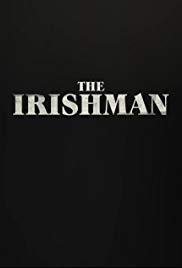
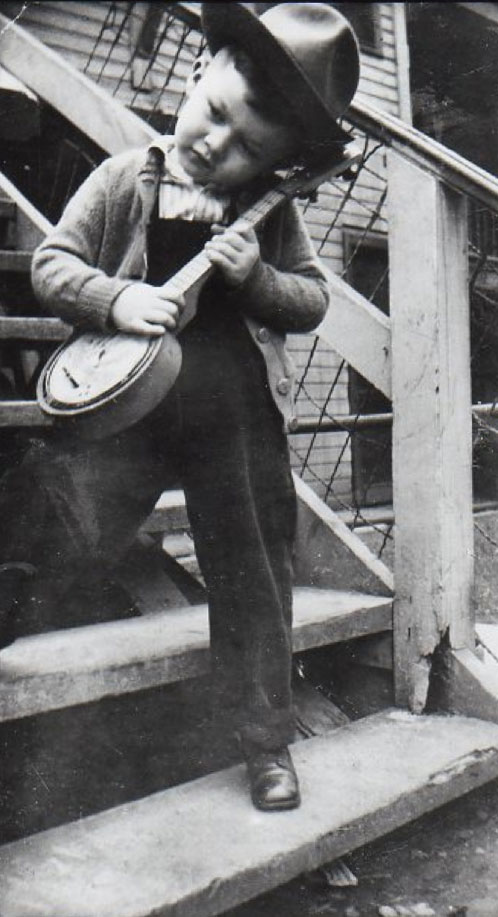
Jaime Royal “Robbie” Robertson is born on July 5th in Toronto, Canada.
His father from Toronto; his mother, of Mohawk descent, born and raised on the Six Nations Reservation.
At an early age, Robbie begins learning guitar from relatives during his summer visits to the reservation.

Robbie is active around Toronto in various teenage groups, including Little Caesar & The Consuls, Robbie Robertson and the Rhythm Chords, Robbie & The Robots and Thumper and the Trambones.
Singer Ronnie Hawkins records two early Robertson songs [“Hey Boba Lu” and “Someone Like You”] for his Mr. Dynamo LP. Robertson then joins Ronnie Hawkins & The Hawks on lead guitar.
Hawkins & The Hawks (which includes Levon Helm, Rick Danko, Richard Manuel and Garth Hudson) tour clubs in the U.S. and Canada and are included in performance packages with such acts as Chuck Berry, Carl Perkins and Jackie Wilson. Robertson’s unique bluesy rock style on such songs as “Who Do You Love” and “Come Love” ushers in a new era of guitar sound and significantly influences other musicians.
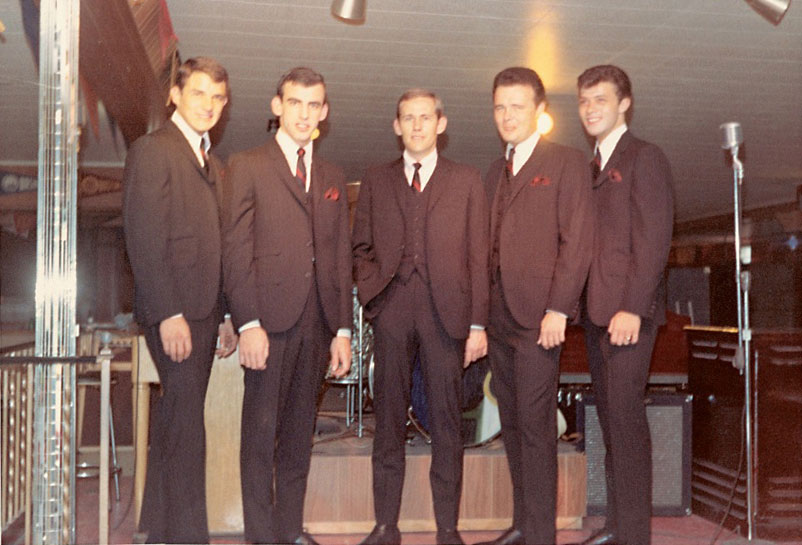
On their own, The Hawks — under the name The Canadian Squires — release the single “Uh-Uh-Uh” backed with “Leave Me Alone” on the New York-based Ware label. The tracks are produced by R&B pioneer Henry Glover. Although The Hawks never changed their name during this period, the label felt the group should establish their own reputation and distance themselves from being known as “Ronnie Hawkins backup band”, thus dub them The Canadian Squires..
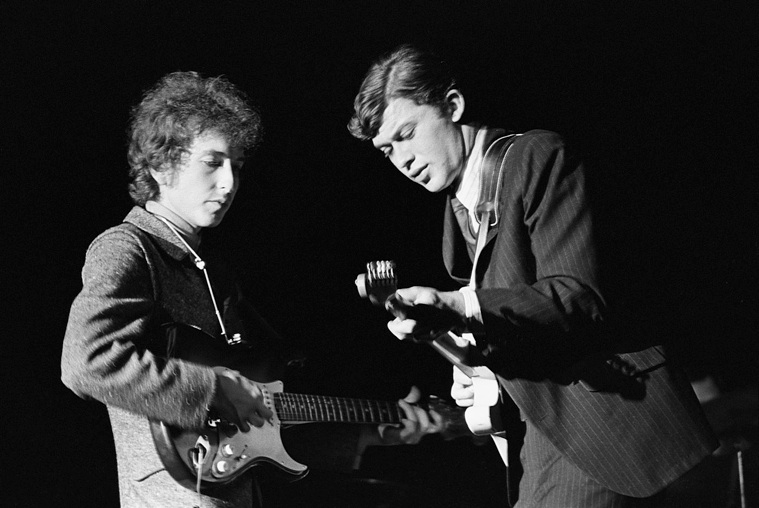
In late summer, Bob Dylan is looking for a backup band for his first U.S. “electric” tour. Robertson is recruited to play guitar and after two shows the balance of The Hawks are brought aboard
With Dylan, the Hawks play a series of concerts from September 1965 through May 1966, marking Dylan’s final transition from folk to rock.
Robbie plays guitar on the John Hammond album So Many Roads. Robertson’s guitar work is among his most exciting blues performances, what Greil Marcus described as “all rough edges, jagged bits of metal ripping through the spare rhythm section”.
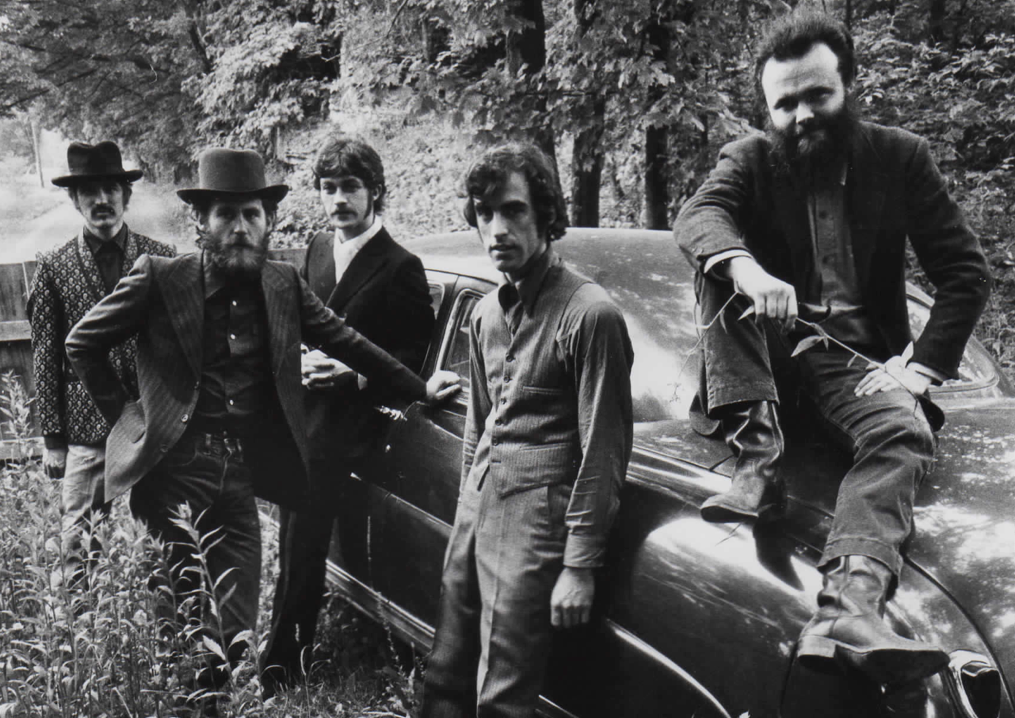
The Hawks become The Band and sign to Capitol Records.
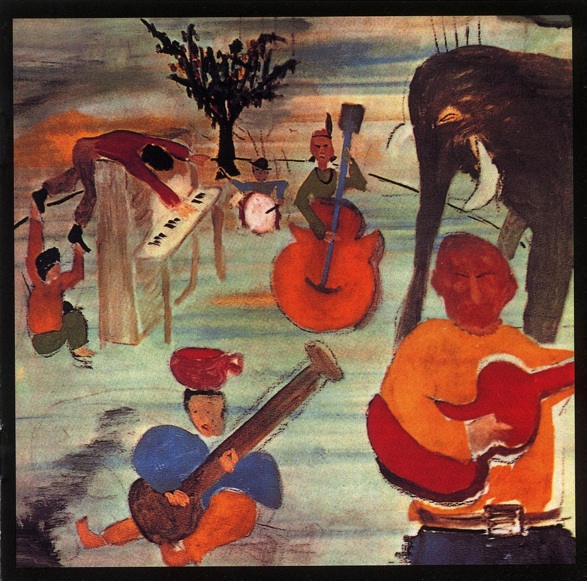
Music From Big Pink, debut album from The Band is released in late summer. It features now classic tunes by Robertson (including “The Weight,” “Caledonia Mission” and “Chest Fever”) as well as the first official version of Dylan’s “I Shall Be Released.” In addition to critical acclaim, the album was revered by some of the biggest names in rock, including The Beatles, Eric Clapton and The Rolling Stones.
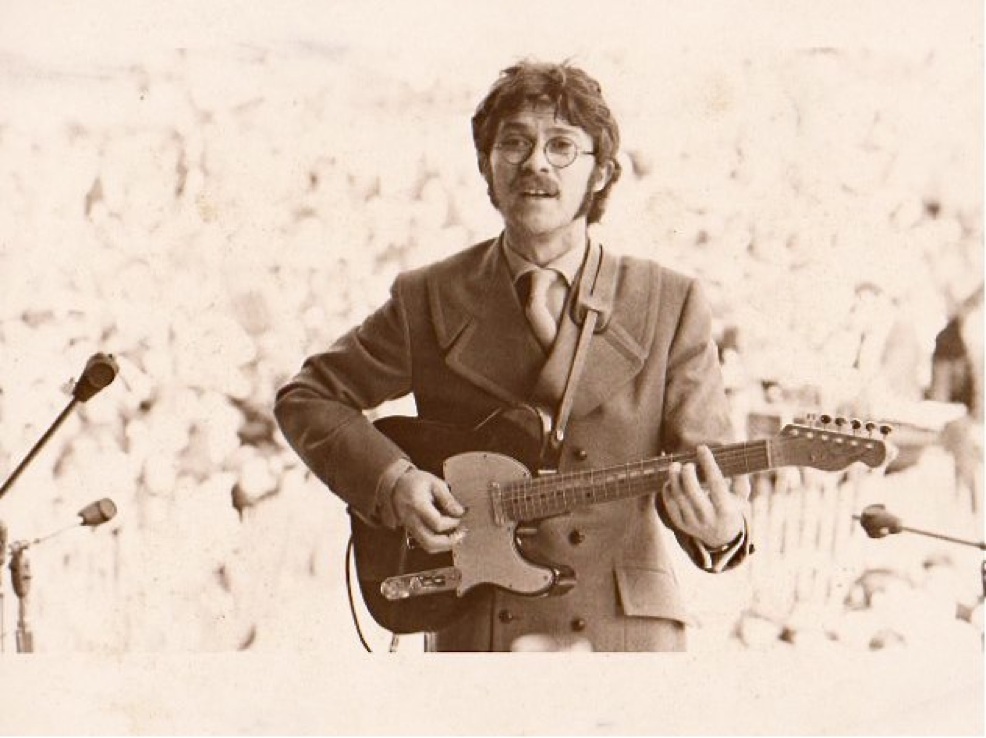
The Band, released in September, is the their 2nd album. It peaks at #9 on Billboard’s Pop Albums chart and in 2000,re-charted on Billboard’s Internet Albums chart, peaking at #10. The album includes many of The Band’s best-known and critically acclaimed songs, including “The Night The Drove Old Dixie Down,” which Rolling Stone later names the 245th greatest song of all time. In 2003, the album is ranked number 45 on Rolling Stone magazine’s list of 500 greatest albums of all time. In 1998, Q magazine readers vote The Band the 76th greatest album of all time. TIME magazine include it in their unranked 2006 list of the 100 greatest albums.
Following it’s release, The Band embark on their first tour of the U.S and Canada.
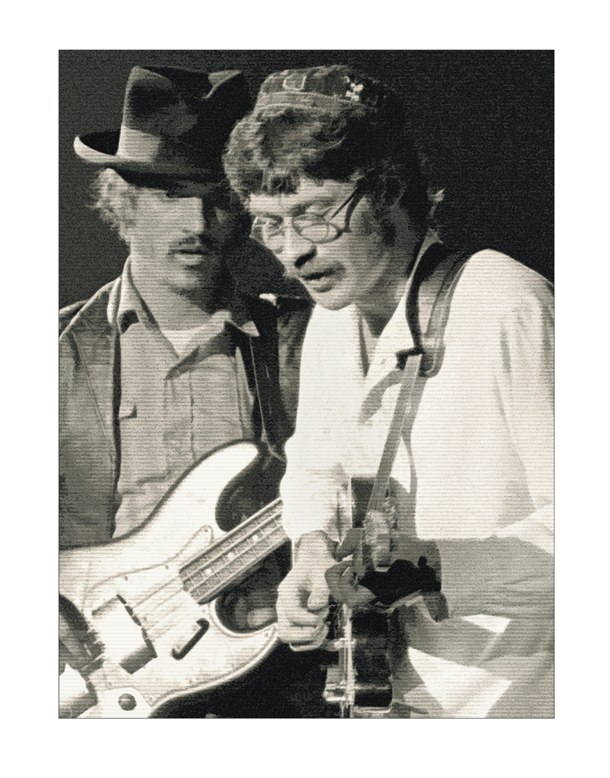
On August 17th, The Band perform at the legendary Woodstock Music & Art Fair.
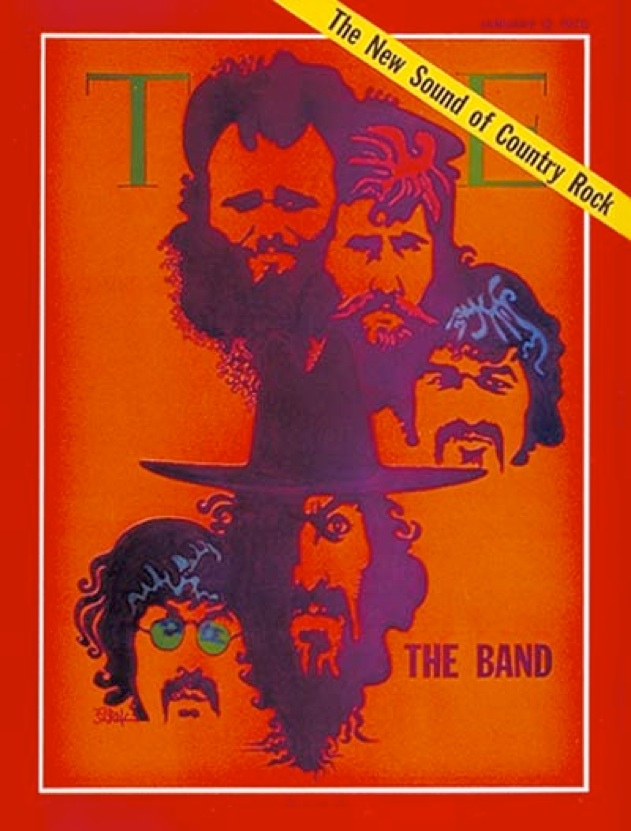
The Band are the first North American musical act to be featured on the cover of Time Magazine.
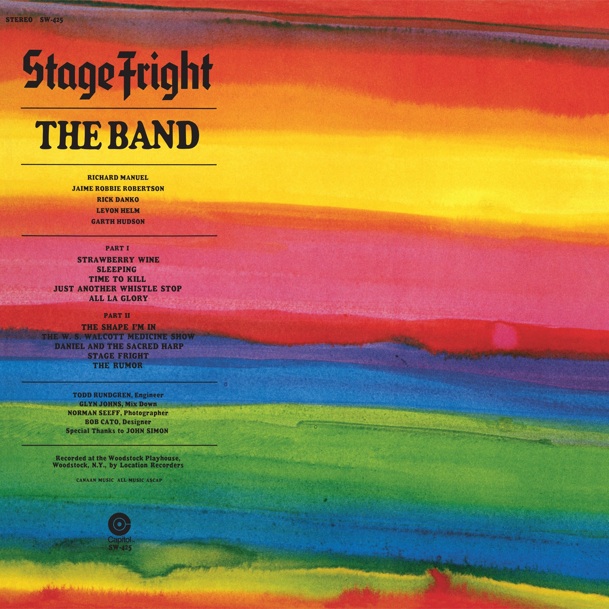
The Band’s third album, Stage Fright, is released in the summer and peaks at #5 on Billboard’s Pop Album Charts. The title track and “The Shape I’m In” are among the standout Robertson songs.
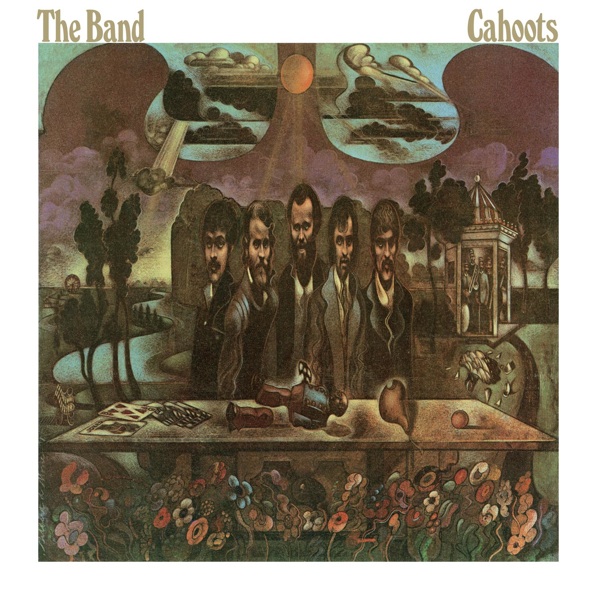
Cahoots [The Band’s 4th studio album] is released and features “Life Is A Carnival” and “4% Pantomime,” which is co-written by Roberston and Van Morrison.
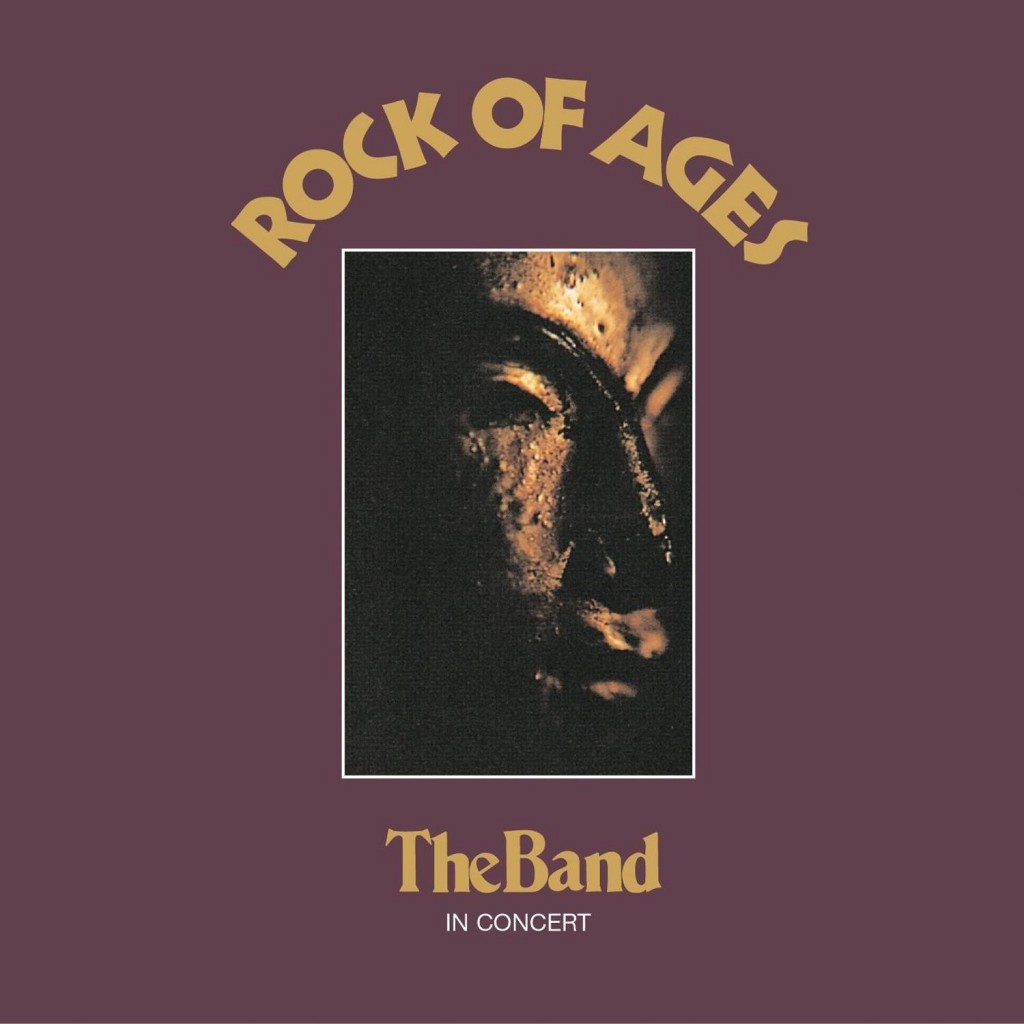
The Band then set off on another U.S. tour concluding with a series of shows at New York City’s Academy of Music December 28th through 31st. The New Year’s Eve performance is recorded and released the following year as the double-album, Rock Of Ages, and achieves gold status. Among its noteworthy cuts is the previously unreleased Robertson original “Get Up, Jake” and a cover of the R&B number “Baby, Don’t Do It.” Allen Toussaint is responsible for the horn arrangement adding a New Orleans flavor to the show.
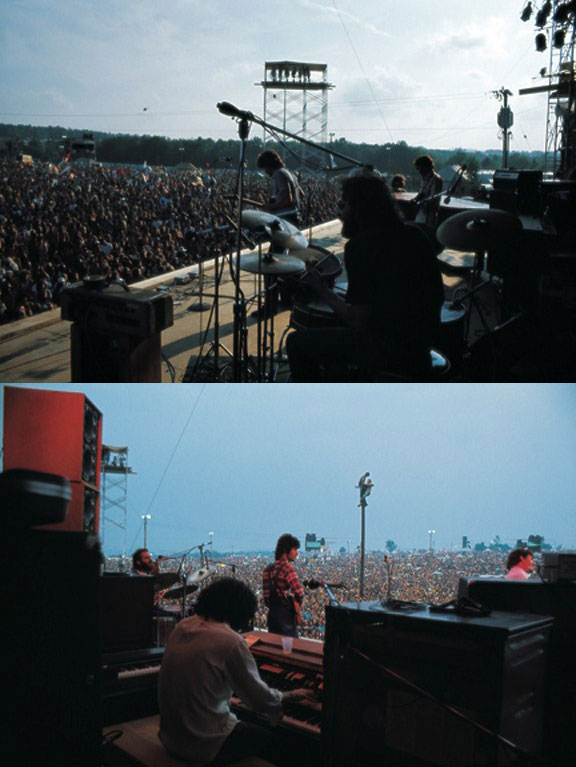
In July, The Band appear before an estimated 650,000 people (the largest rock concert in history) at the Summer Jam at Watkins Glen, a festival in upstate New York. Sharing the bill are The Allman Brothers and The Grateful Dead.
The Band head into the studio to support Bob Dylan for his upcoming Planet Waves release.
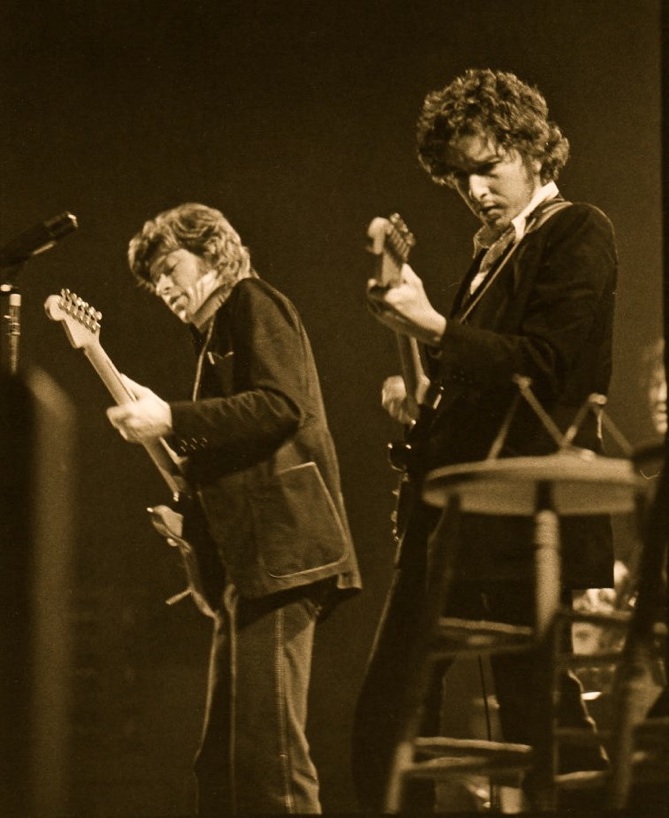
On the heels of their studio collaboration, Bob and The Band decide to hit the road together. Ticket demand for the 40 show / 21 city tour is one of highest in rock music history; tickets were sold by mail-order only and promoter Bill Graham claims mail-order requests exceed twelve million, though only about a half-million seats are available for the shows.
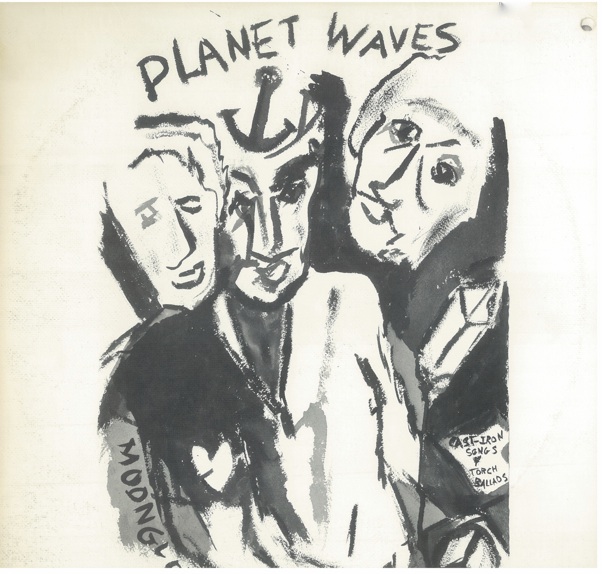
Planet Waves, Bob Dylan’s 14th studio album with The Band supporting, is released in mid January. It reaches #1 on the US Billboard charts and #7 in the UK.
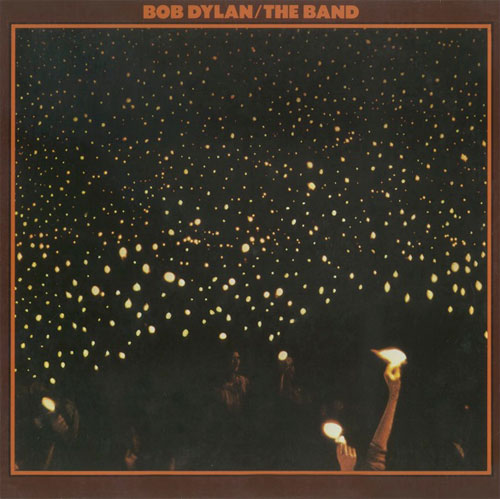
Before the Flood is a the live album by Bob Dylan and The Band, released in June, documenting the Bob Dylan and The Band 1974 Tour. It peaked at #3 on the Billboard 200 and reached #8 in the UK.
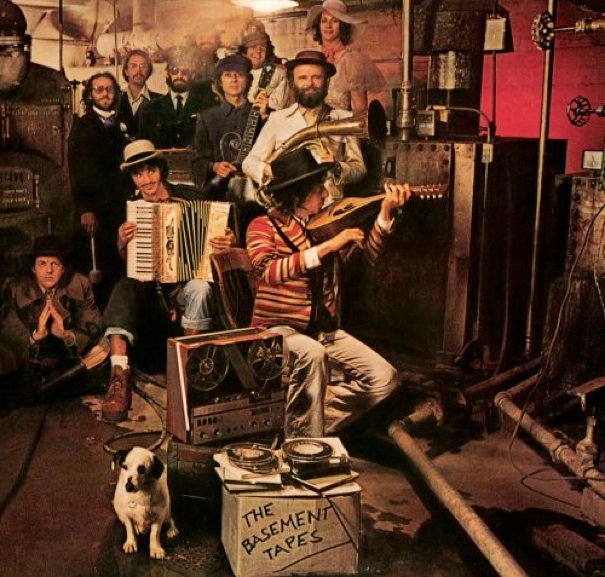
Released in June, The Basement Tapes is a studio album by Bob Dylan and The Band. It consists of sixteen Dylan compositions and eight by the Band. The Dylan tracks were recorded in 1967 in the basement of Big Pink, a house shared by three of the members of the Band, while the Band tracks were recorded at various times and locations between 1967 and 1975.
The Basement Tapes peaked at #7 on Billboard’s Pop Albums chart and reached #8 in the UK. In 2003, the album would be ranked at #291 on Rolling Stone magazine’s list of the 500 greatest albums of all time.
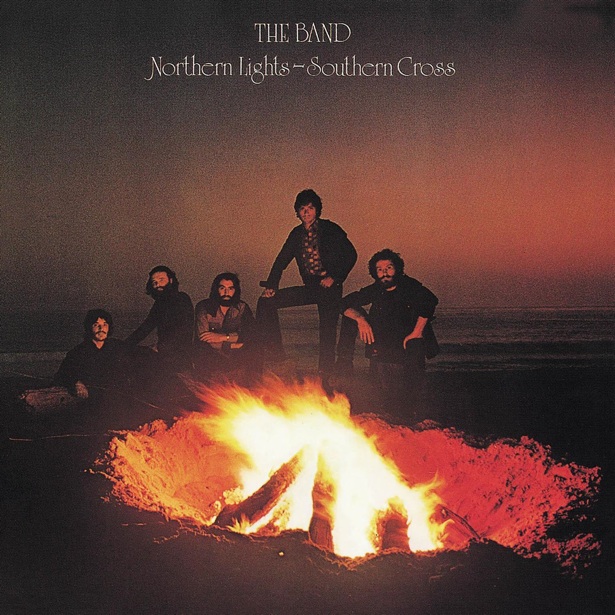
Northern Lights – Southern Cross is released in early November. It’s the first album to be recorded at The Band’s new California studio, Shangri-La, and the first album of all-new material since 1971’s Cahoots. Robbie Robertson writes all eight songs on the record and include such gems as “Ophelia,” “It Makes No Difference” and Acadian Driftwood.”
Robbie produces Neil Diamond’s album, Beautiful Noise. It marks a radical departure in production, style, arrangements and compositional diversity for Diamond and is considered by many to be his finest all around album.
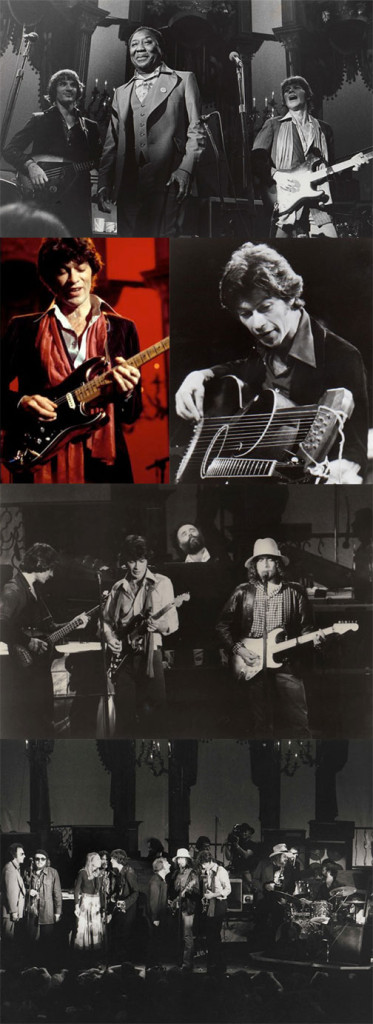
After 16 years together, The Band say farewell with the gala Last Waltz concert held on Thanksgiving Day, November 25th, at Winterland Ballroom in San Francisco. The event is advertised as the end of The Band’s illustrious touring career and the concert features The Band joined by more than a dozen special guests, including Paul Butterfield, Eric Clapton, Neil Diamond, Bob Dylan, Emmylou Harris, Ronnie Hawkins, Dr. John, Joni Mitchell, Van Morrison, Ringo Starr, Muddy Waters, Ronnie Wood and Neil Young. The event is filmed by director Martin Scorsese for future release.
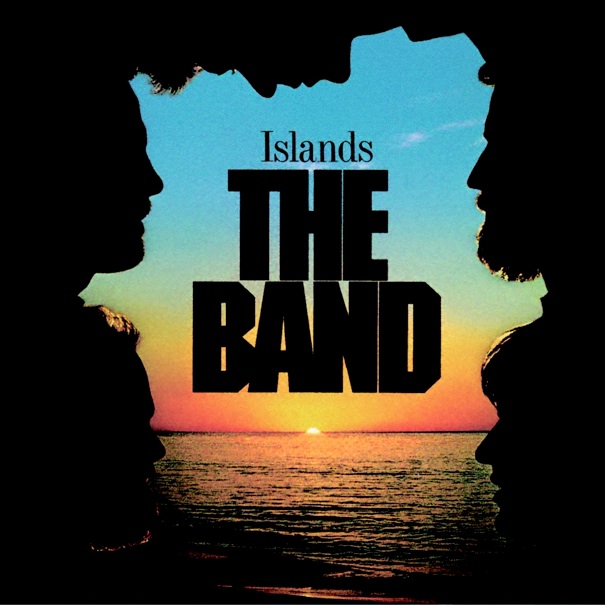
Islands, The Band’s final studio album with Robertson is released in March. It features “Christmas Must Be Tonight” and “Knockin’ Lost John,” Robertson’s first lead vocal since “To Kingdom Come” on Music From Big Pink.
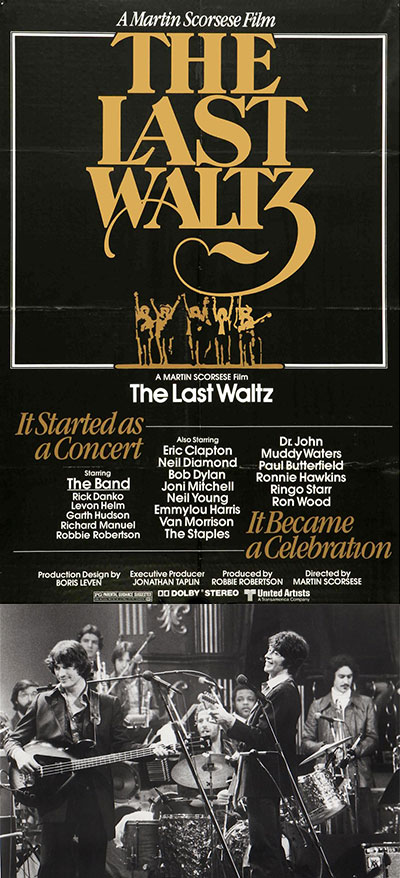
The Last Waltz documentary by Martin Scorsese is released as is the album of the same name. The film has been hailed as one of the greatest concert films ever made.
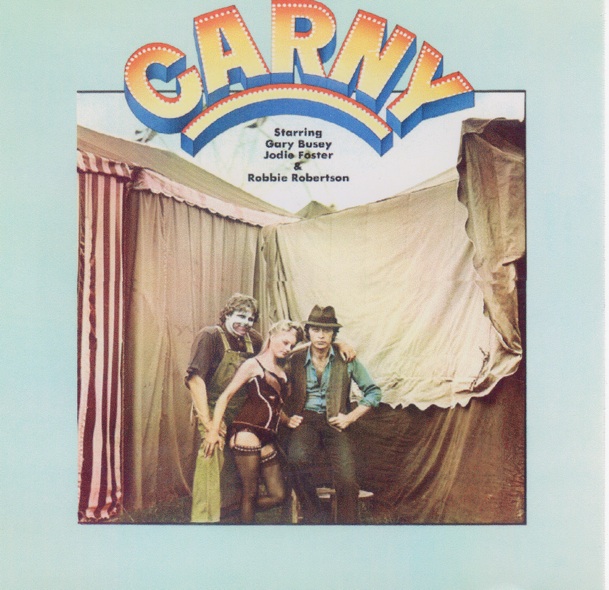
Robertson co-stars with Gary Busey and Jodie Foster in Carny (released 1980). He also co-writes, produces and composes source music for the film. Robbie becomes one of the first rock’n’rollers to seriously engage the medium of film..
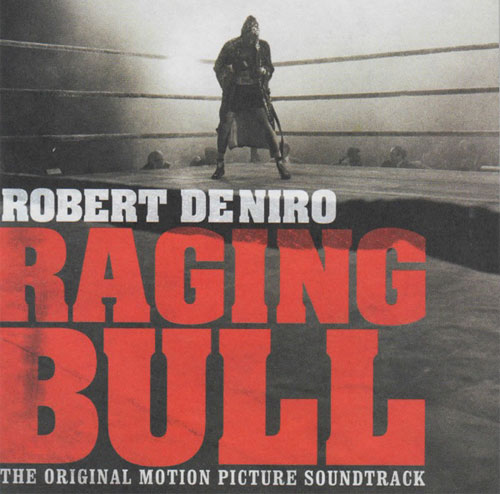
Robertson creates background music and produces source music for Martin Scorsese’s Raging Bull (released 1980).
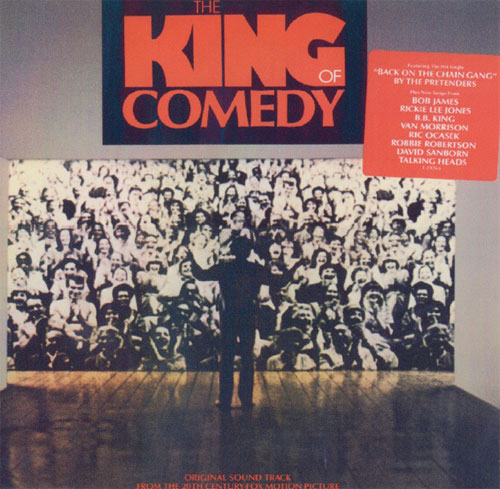
For another Scorsese film, King Of Comedy (released in 1983), Robertson serves as music producer, assembling tunes by The Pretenders, Talking Heads, Ray Charles and Rickie Lee Jones. He also contributes with his first post-Band solo recording, “Between Trains.” In addition, the soundtrack includes Van Morrison’s “Wonderful Remark,” for which Robbie produced and played guitar.
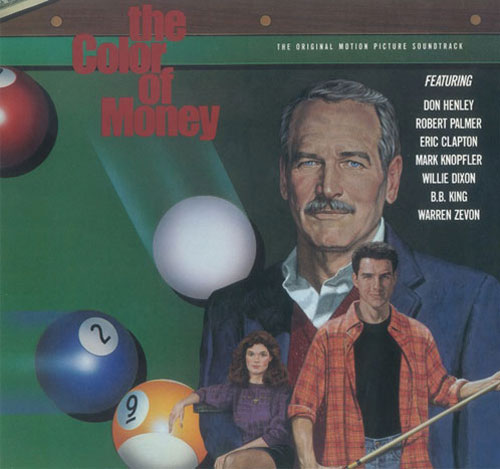
Robbie scores Scorsese’s The Color of Money (released in 1986). He works with Jazz great Gil Evans and co-writes “It’s In The Way That You Use It” with Eric Clapton for the film..
Robertson signs to Geffen Records for his upcoming debut solo record.
Robertson is enlisted as creative consultant for Hail Hail Rock ‘n’ Roll, Taylor Hackford’s documentary film saluting Chuck Berry..
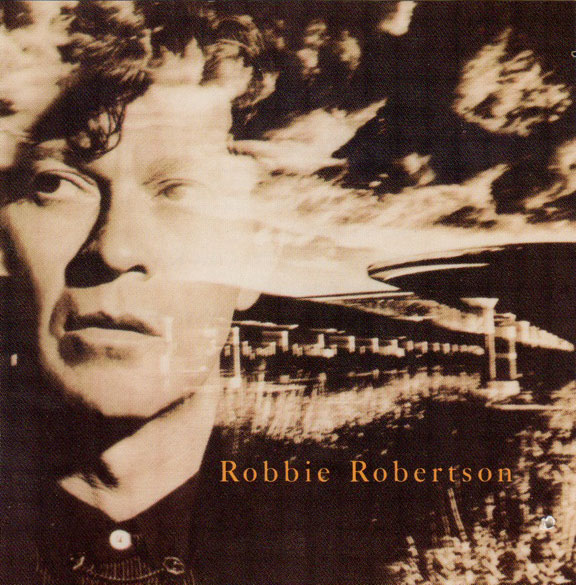
Robbie Robertson, the self-titled solo debut by Robbie, is released in October. Members of U2 and Peter Gabriel are just a few of the many notable artists contributing to the album. The debut peaked at #38 on both the Billboard 200 and UK Album Charts while it’s singles peak even higher on Billboard’s Mainstream Rock Track chart (“Somewhere Down the Crazy River” at #24, “Sweet Fire of Love” at #7 and “Shadow at Big Sky” at #2).
The track “Broken Arrow” would be covered by Rod Stewart on his 1991 album Vagabond Heart. The song would reach #20 in the Billboard Hot 100 that year, as well as #3 on Billboard Adult Contemporary Track chart.
At the Juno Awards (the Canadian version of the Grammy’s), Roberton’s self-titled solo debut wins Album Of The Year; Robertson and Daniel Lanois earn Producer Of The Year; and Robertson is awarded Best Male Vocalist. In addition to Robertson’s virtual Juno sweep, The Band is also inducted into the Juno Hall of Fame. He reunites with The Band (minus Helm) for the first time in a dozen years with a performance at the awards.
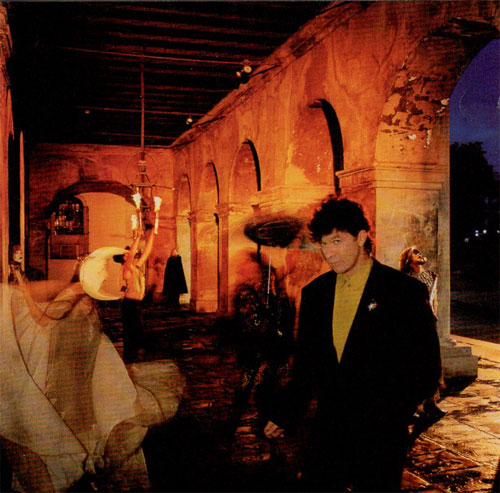
Robertson co-produces his second album, Storyville, with Stephen Hague. Largely recorded in New Orleans, the album features some of the city’s most respected musicians. Storyville earns Grammy nominations for Best Rock Vocal Performance (solo) and Best Engineered Album.
Robbie returns to his first recording home when he signs with Capitol Records.
The Band is inducted into the Rock & Roll Hall of Fame and performs live at the induction ceremony..
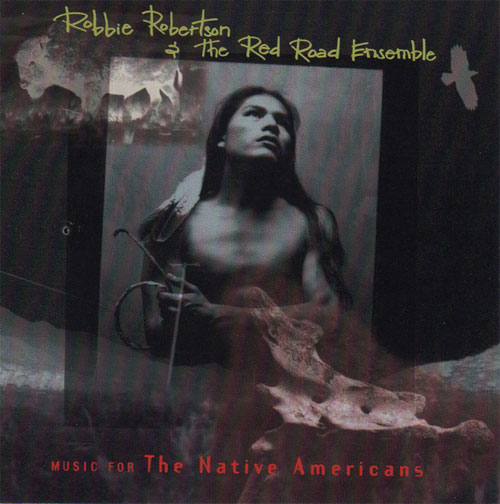
In October, Robbie releases his third solo album entitled Music For The Native Americans. It’s his first foray into writing music specifically inspired by his Mohawk heritage. The success of “Mahk Jchi (Heartbeat Drum Song)” inspires a concert in Agrigento, Italy, celebrating Native American music. Robertson headlines the festival along with numerous Native American musicians, and portions of the live performance will appear in a future PBS documentary.

Robbie is music consultant for Scorsese’s Casino and assembles the soundtrack using recordings from a wide range of artists – from B.B. King to J.S. Bach.
In Rome, Robertson headlines an annual Labor Day concert with support acts Andrea Bocelli, Elvis Costello and Radiohead. More than 300,000 fans attend the event.
Robbie co-stars along side Jack Nicholson and Angelica Huston in the Sean Penn directed film, The Crossing Guard.
Executive soundtrack producer Robertson hears a demo of “Change The World” and sends it to Clapton as a suggestion for the soundtrack to Phenomenon, staring John Travolta. He then enlists Babyface to produce the track. “Change the World” wins 1997 Grammy Awards for Song of the Year and Record of the Year.
The Classic Albums series, which airs on VH1 and BBC, explore the making of some of rock’s most popular and influential records. The story behind The Band’s self-titled and enormously successful sophomore LP is told through a vivid collection of performance footage and interviews with members of The Band, Eric Clapton, George Harrison and Don Was. Classic Albums: The Band is available on Rhino Home Video.
Robertson receives a prestigious Lifetime Achievement Award from the National Academy of Songwriters.
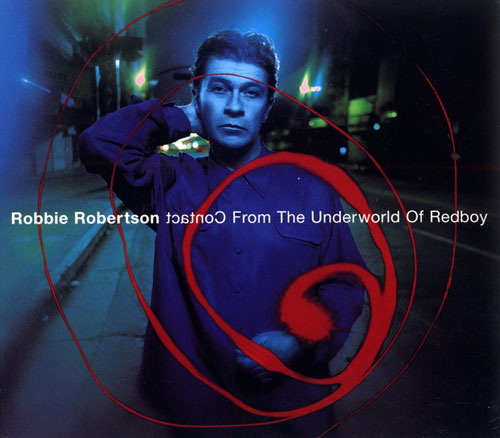
Contact from the Underworld of Redboy is Robertson’s first album in three years. It is composed of music inspired by Native American music (including traditional Native American songs and chants) as well as modern rock, often integrated together, and features many guest artists.
Robertson receives the Lifetime Achievement Award from ASCAP.
Robertson composes the musical score to Oliver Stone’s Any Given Sunday.
Robertson returns to the Six Nations Reservation as part of a one-hour documentary entitled Making A Noise: A Native American Journey with Robbie Robertson. Broadcast on PBS, the special takes viewers on a musical journey into the Native American heartland.
Released in October, Live 1966: The “Royal Albert Hall” Concert is a two-disc live album by Bob Dylan. It is from Dylan’s legendary world tour in 1966 and is an essential document in the development of popular music during the 1960’s, and some consider to be the greatest concert of all time. The complete live show is remixed and remastered from the original three-track source tapes. The first disc is Dylan’s solo acoustic set; the second disc features his electrifying backing band, The Hawks (minus Helm). Capturing the hostility of “folk purists” in the audience, the set includes the stomping, booing and now-infamous cry of “Judas” form one audience member – plus Dylan’s caustic retort. The album debuts at #31 on the Billboard 200 chart and Mojo magazine declares it “the most famous bootleg of all time.”
Robertson reflects on the break up of The Band, his solo career and his Native American roots in VH1’s Behind The Music: Robbie Robertson.
Music industry legends David Geffen and Mo Ostin convince Robertson to join DreamWorks Records as Creative Executive. Robertson, who persuades Grammy Award winner Nelly Furtado to sign with the company, is actively involved with film projects and developing new artist talent, including signings of Boomkat, Daniel DeBourg, eastmountainsouth and singer-songwriter-pianist Dana Glover.
Robertson overseas Capitol Records’ reissue campaign for all eight of The Band’s original albums. In addition to supervising the remastering and remixing, he personally oversees the selection of all previously unreleased material to be included with each release.
Life & Times, CBC-Television’s premier biography series, airs Road Songs: A Portrait of Robbie Robertson. Directed by Bruce McDonald (Highway 61, Hard Core Logo, Claire’s Hat), the documentary traces Robertson’s history from the streets of Toronto to stages around the world to his role at DreamWorks Records.
The first-ever Grammy for Native American Album of the Year is awarded to XIT (Crossing of Indian Tribes) for Gathering of Nations Pow Wow. Robertson plays a pivotal role in garnering mainstream attention for the efforts of the Native American Music Association to secure recognition by The Recording Academy for artists in this genre.
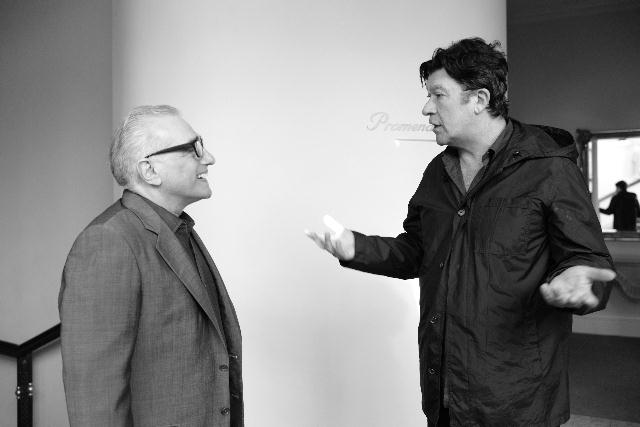
Celebrating the 25th anniversary of The Last Waltz, Robertson and Scoresese provide newly edited, never-before-released elements from The Band’s final performance. In addition to a theatrical re-release (United Artists), The Last Waltz is also available as a Special Edition DVD (MGM Home Entertainment) and four-CD boxed set (Warner Bros./Rhino). Robertson supervises the 5.1 Dolby Surround Sound DVD mix and painstakingly remixes and remasters the boxed set from the original multi-track masters.
Robertson performs in the Native American ceremonial spectacular at the opening ceremonies of the XIX Winter Olympics in Salt Lake City, Utah. He composes new versions of two tracks especially for the event: “Making Noise” and “Stomp Dance (Unity)” — both from Contact From the Underworld of Red Boy. The Five Nations Native American blessings of the athletes features “Coyote Dance,” from Music For The Native Americans.
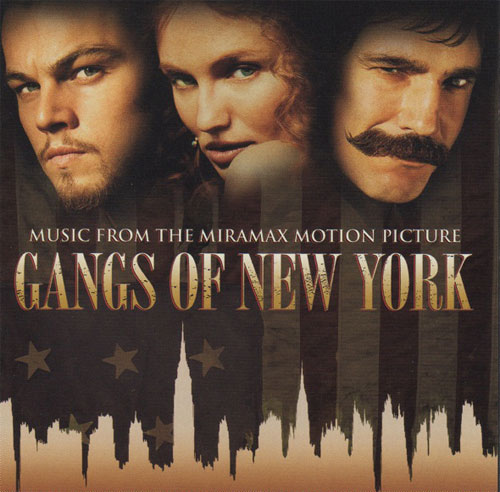
Reuniting with Scoresese on a new film project, Robertson serves as music supervisor on Gangs of New York (Miramax), which features an ensemble cast that includes Daniel Day-Lewis, Cameron Diaz and Leonardo DiCaprio. The film is released in July 2002.
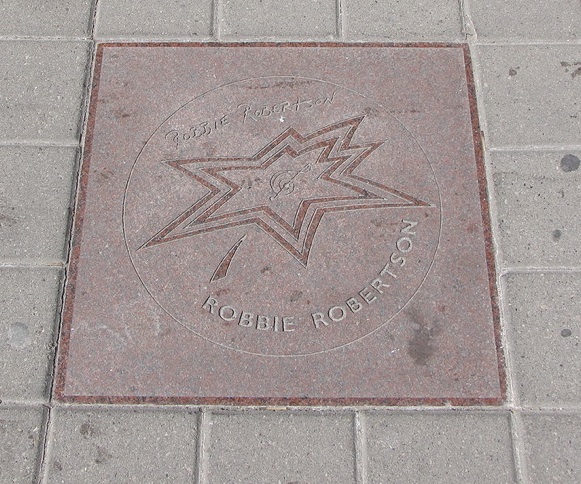
Robertson deliverers an address to the graduating class at Queen’s University in Kingston, Ontario and is awarded an honorary degree by the University.
Robbie is inducted into Canada’s Walk of Fame.
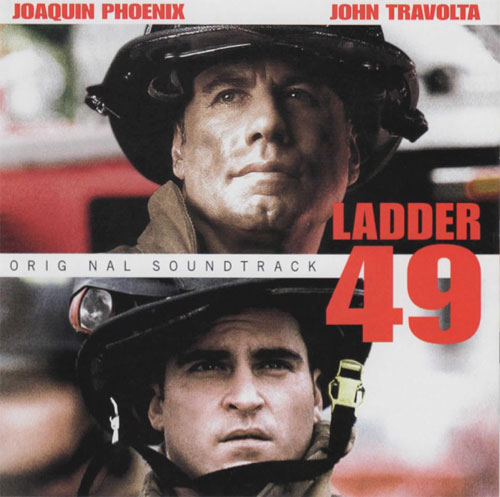
The film Ladder 49, staring Joaquin Phoenix and John Travolta, includes the anthem/gospel hymn “Shine Your Light”, written and recorded specifically for the film by Robbie Robertson. After hearing the song for the first time, director Jay Russel recalls, “I just sat there thinking, ‘I’m very moved by this song; I think it’s beautifully poetic,’ and it was exactly what I was looking for.” The song is played in it’s entirety over the film’s dramatic culminating scene; it’s the only sound that’s heard. Robertson also composes an orchestral adagio for the final credits.
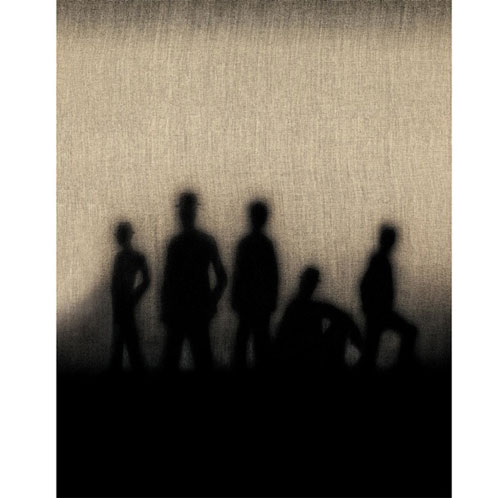
The Band – A Musical History is released in September. Executive Producer Robbie Robertson puts together a truly impressive Band box set anthology. It features 111 tracks spread over five CDs, one DVD and a 108-page hardcover book. Roughly spanning the group’s journey from 1961 to 1977, from their days behind Ronnie Hawkins and Bob Dylan through Robbie’s departure and first disbanding of the group. The set includes highlights from each of the group’s seven studio albums and both major live recordings and nearly forty rare or previously-unreleased performances. The book contains candid photographs of artists from Bob Dylan to Janis Joplin and a detailed history of the Band by Grammy Award-winning musicologist Rob Bowman.
Robertson serves as music producer on another Scoresese film. The Departed is released in October and stars Leonardo DiCaprio, Matt Damon, Jack Nicholson and Martin Sheen.
Robbie performs with Eric Clapton at the Crossroads Guitar Festival.
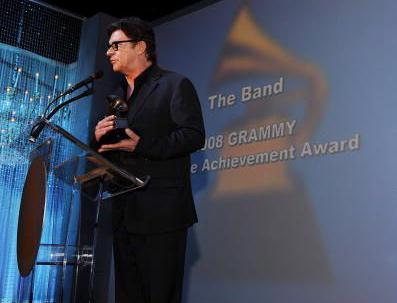
The Band receives The Grammy Lifetime Achievement Award.
Robertson heads into the studio with Eric Clapton to commence to recording of his fifth solo effort, “How To Become Clairvoyant.”
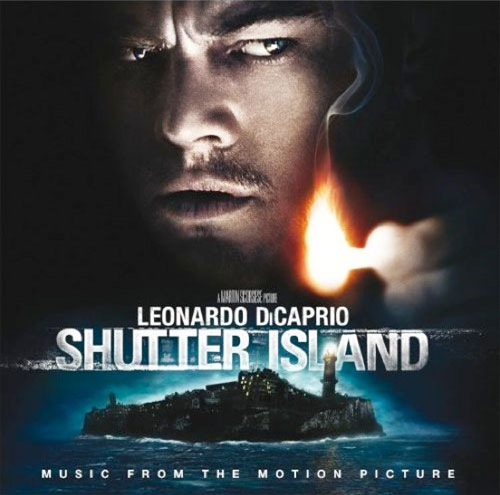
Robbie is music supervisor for Scorsese’s film Shutter Island. “I think this is the first time that Marty has ever called me and said, ‘on this picture I really don’t have any ideas on where to start musically.’ After I read the script I suggested to him that instead of a traditional film score, that I put together a batch of music centering around modern classical composers with a few songs from the time period of the movie sprinkled in. Marty felt it really connected with the film and we went on a mission of doing something unlike anything we’d ever done before.”
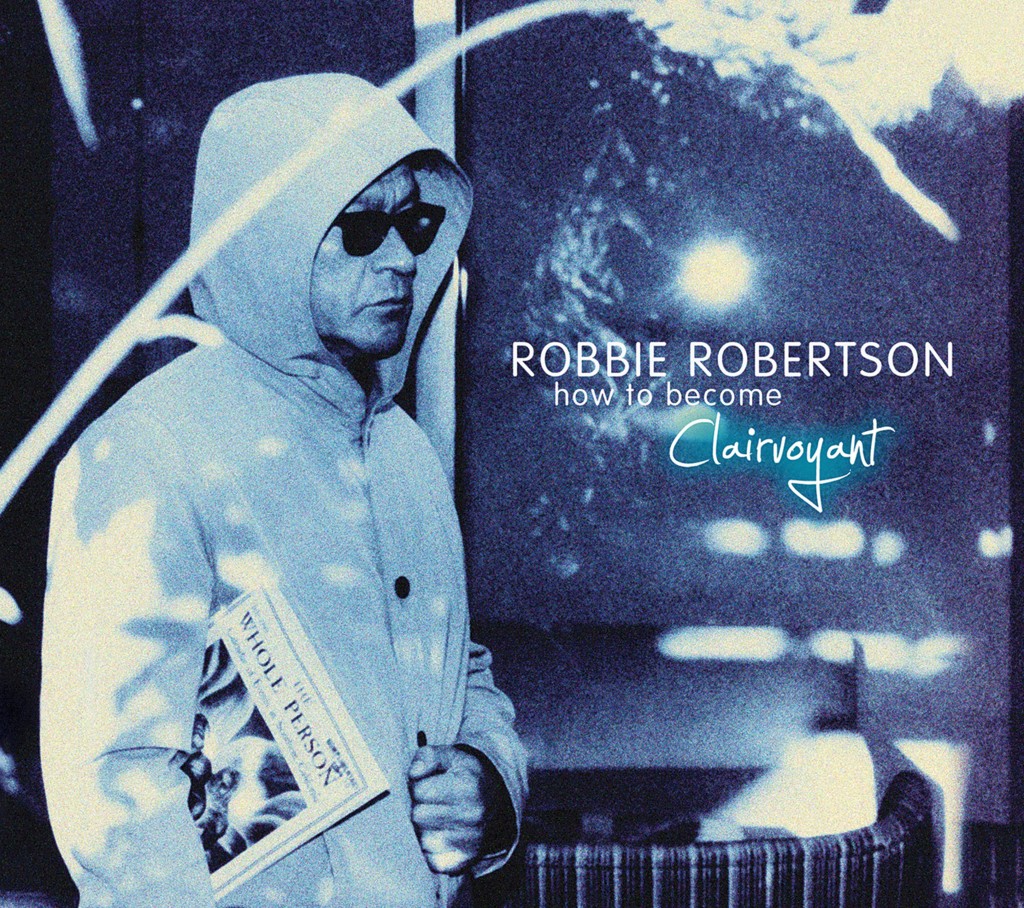
Robbie’s fifth solo album, “How To Become Clairvoyant,” will be released on April 5, 2011. It will feature Eric Clapton, Steve Winwood, Trent Reznor, Tom Morello, Robert Randolph and Angela McCluskey.
Robbie is inducted into the Canadian Songwriters Hall Of Fame and is given the Royal Order of Canada.
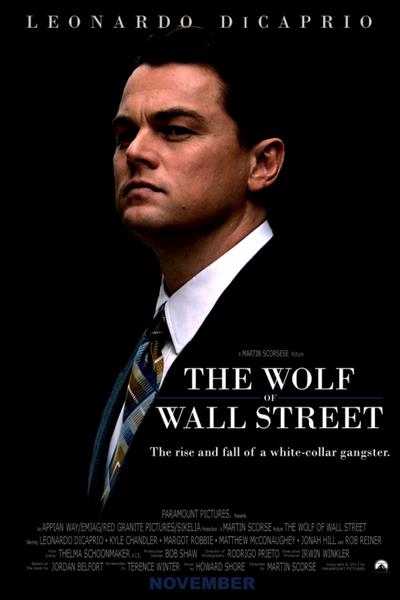
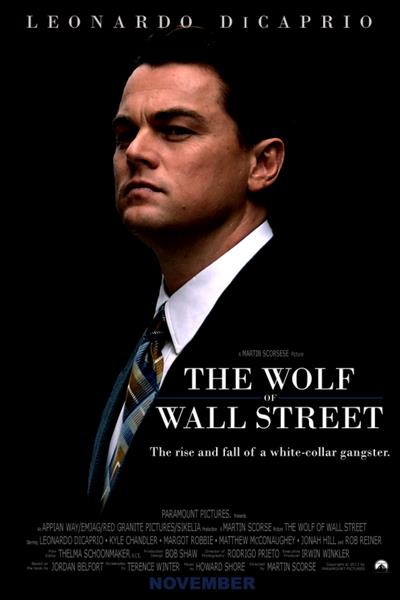 Robbie joins forces with Martin Scorsese to produce and compose music for the film, “The Wolf Of Wall Street,” starring Leonardo Di Caprio.
Robbie joins forces with Martin Scorsese to produce and compose music for the film, “The Wolf Of Wall Street,” starring Leonardo Di Caprio.
Robbie inks deal with Random House to pen autobiography.
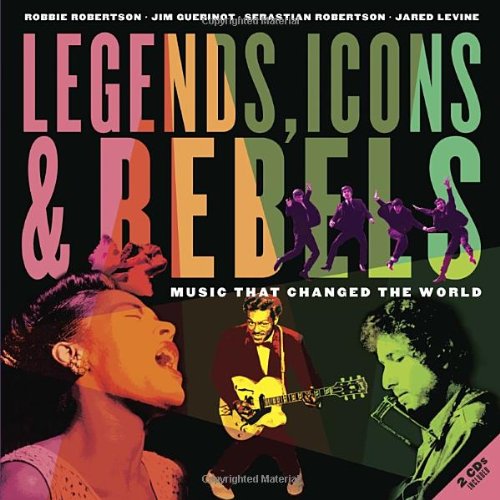
Robbie teams with his son, Sebastian and colleagues Jim Guerinot and Jared Levine to co-author “Legends, Icons & Rebels,” which debuts in the Top 20 on Amazon.
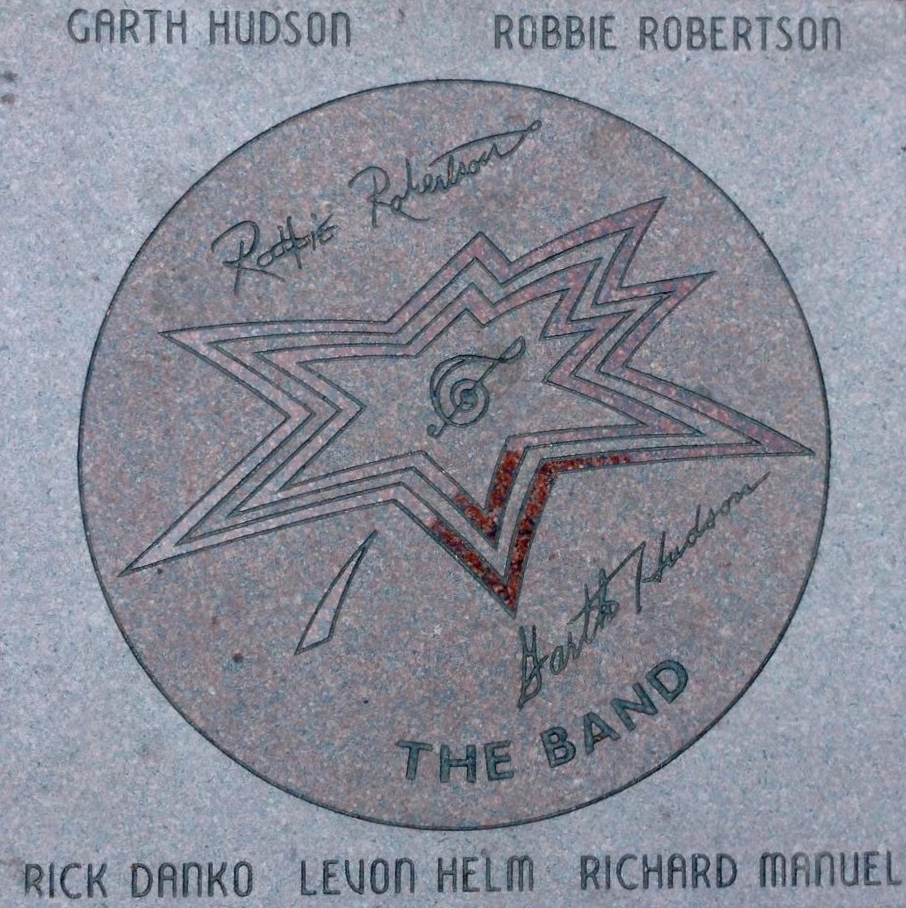
The Band is inducted into Canada’s Walk Of Fame.
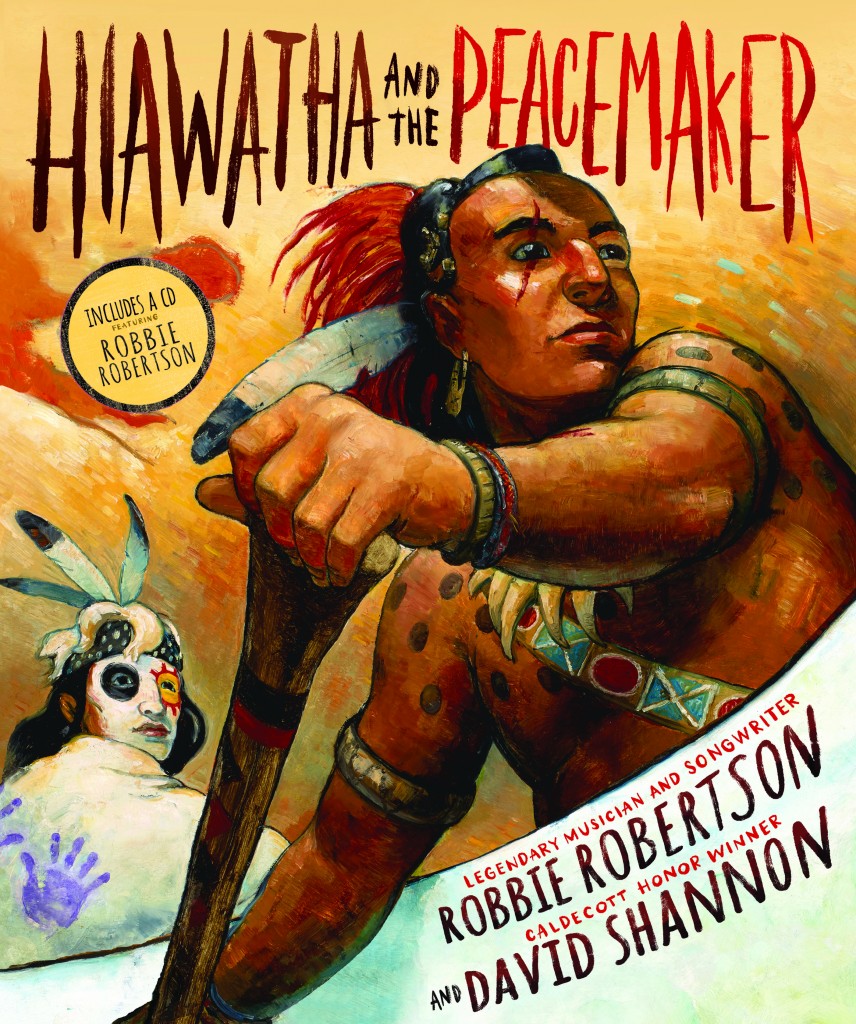
In concert with Caldecott Award winning illustrator David Shannon, Robbie once again teams with his son Sebastian to write “Hiawatha And The Peacemaker, a children’s book celebrating a story from his Mohawk heritage.
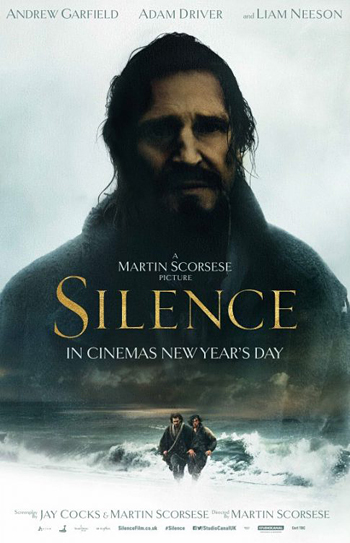
Robbie teams with Scorsese as executive music producer for the award winning film Silence
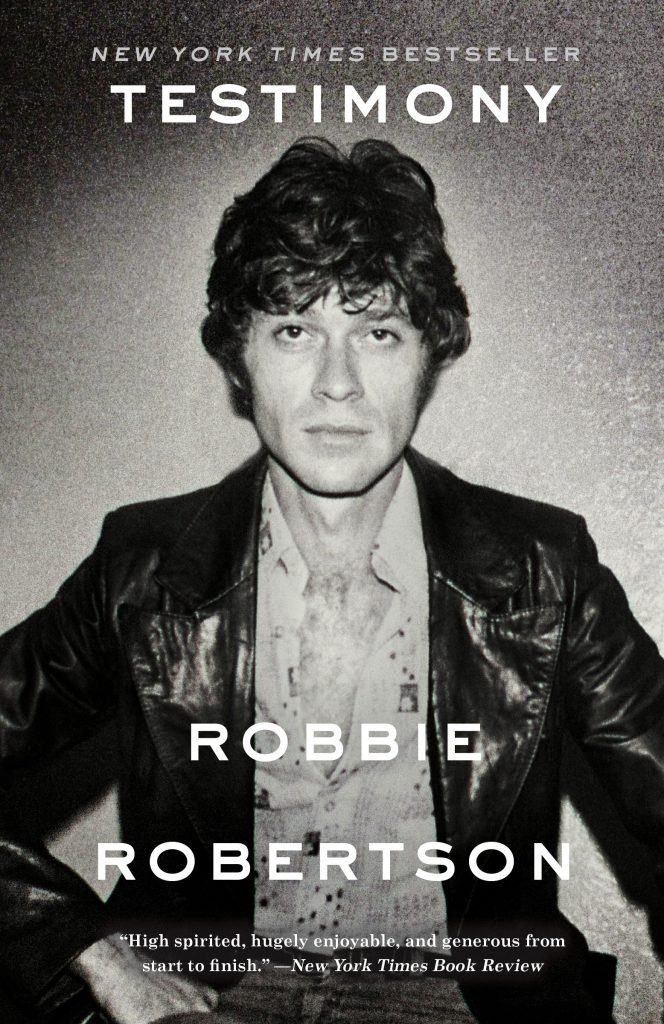
Robbie releases his autobiography Testimony, a New York Times Bestseller.
Robbie receives an honorary fellowship to the Royal Conservatory of Music. “Some of my earliest memories are from just down the way on Bloor Street…I’ve realized after all these years and after all the work I’ve done, I’ve only come a few blocks.”
